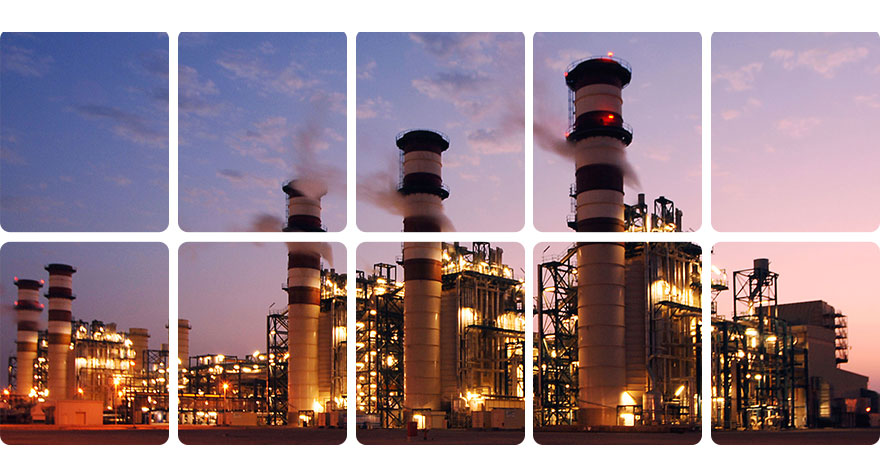Oil Refinery
Without oil and gas, today’s modern world would be unthinkable. Oil and gas mean energy. Whether mobility, communication, food preparation or trade and commerce, whether for the production of petrochemical products or for pleasant room temperatures, in all cases a reliable, round-the-clock energy supply is needed.
The demands on the Oil & Gas Industry are immense, particularly in the face of the rapid, inexorable rise in the world population and constantly increasing demands on environment and efficiency. In other words, a maximum yield of high-quality, environmentally friendly and safe products which fulfill the market demands of today and tomorrow combined with a minimum need for power and human resources.
Productivity and resource efficiency, reliability and safety are the key to economic success in the production processes of plants in the Oil & Gas Industry. Only companies that successfully manage these challenges can meet the market demands for short delivery times, assured quality and prices that are always in line with the market.
Maybe You know the keys required to achieve higher productivity in plants: a maximum degree of automation, consistent quality – and, last but not least, the highest possible availability and safety.
Our solutions is specifically tailored to your requirements. Top priority is placed on integration, openness and asset management – in all key areas. Our solutions are based on proven industrial standards and are optimized to achieve the highest possible degree of economic efficiency throughout the entire life cycle of a plant.
Advantages for system integration Growing pressure on the production side of the end customer leads automatically to the need in an integrated and cost-efficient solutions.

A process Control System (PCS) are used to automatically control a process oil refineries. The PAS often uses a network to interconnect sensors, controllers, operator terminals and actuators. A PAS is often based on open standards in contrast to a DCS (distributed control system), which is traditionally proprietary.
Process automation involves using computer technology and software engineering to help power plants and factories in industries as diverse as paper, mining and cement operate more efficiently and safely.
Process automation simplifies operation with the help of sensors at thousands of spots around the plant that collect data on temperatures, pressures, flows and so on. The information is stored and analyzed on a computer and the entire plant and each piece of production equipment can be monitored on a large screen in a control room.
Plant operating settings are then automatically adjusted to achieve the optimum production. Plant operators can manually override the process automation systems when necessary.
The automation solution increases process availability, production and profitability of the plant, while ensuring safety and security of personnel, equipment and the plant environment.
